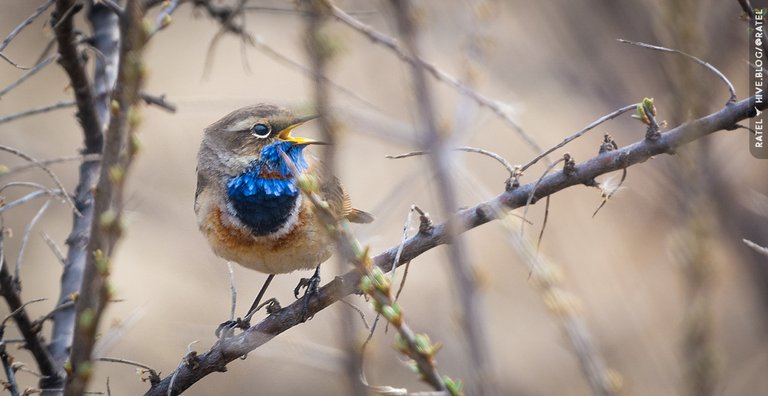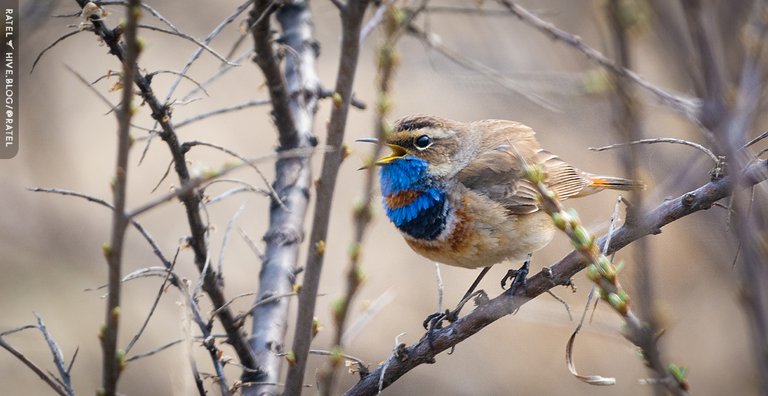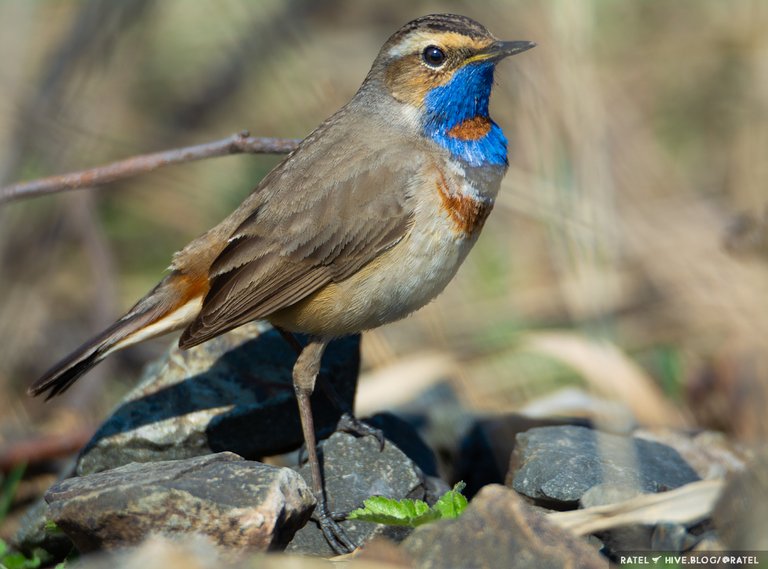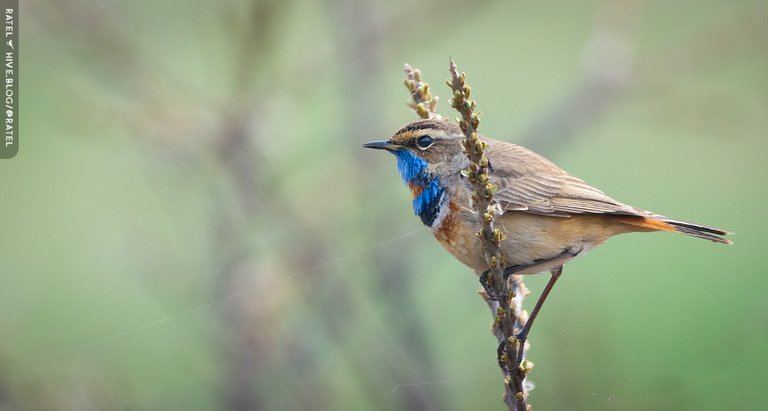Birdwatching - 3134 🐦

🦉 The bluethroat (Luscinia svecica)
- Luscinia (lat.) Nightingale
- svecica suecicus (lat.) Swedish; the name svecica, according to the history of the description, is not a toponym, but is given for the color of the male's chest:
Olof Rudbeck junior, Swedish botanist and birdwatcher, mentor to Carl Linnaeus, having discovered the bluethroat in 1695 in Lapland, he gave it the name Avis Carolina in honor of the Swedish king Charles XI and the blue-yellow Swedish flag (in those days the yellow color on the flag was more reddish), and K. Linnaeus in 1758, when the absolute power of the monarchy in Sweden was no longer, considered the name svecica more correct than carolina (Jobling, 2010)

This beautiful multi-colored nightingale can be found almost everywhere. Its favorite habitats are river floodplains, stream valleys, lake shores, flooded meadows. Simply put, these birds like to settle where it is damp and there are thickets of bushes or reeds.

This nightingale is known primarily for its song. If you listen closely, you can catch phrases borrowed from other birds that live around it. This friend in the photo, whom I met near the river, used the voices of terns, tits, rosefinches, all those that he heard nearby, in his song.

| Camera | Lens |
|---|---|
| Nikon D5200 | Sigma 150-600mm F5-6.3 DG OS HSM Contemporary |
0
0
0.000
This bird have cool blue color 👌👌👌👌☕📸
It seem like a bird that enjoy cold weather a lot, and to be frank, I think it shows on it body, very nice looking bird.
great shots
!INDEED
Hello, dear friend @ratel, how are you?
What a lovely bird! The color combination of its feathers is very meaningful. Excellent shots.
Enjoy a beautiful morning.
Sending you Ecency curation votes.😉

https://www.reddit.com/r/birdwatching/comments/1mo6o9f/bluethroat_luscinia_svecica/
This post has been shared on Reddit by @edeyglezsosa through the HivePosh initiative.
Waooo!! 😻😍 Que ave mas Bella @ratel, nunca la había visto, si color azul es perfecto!! 👏 Saludos